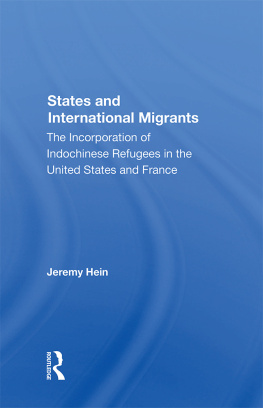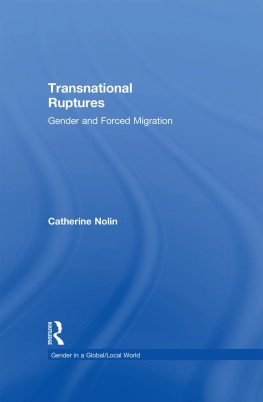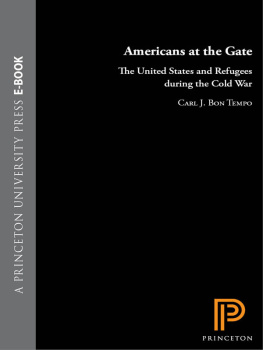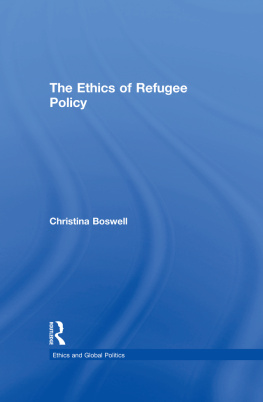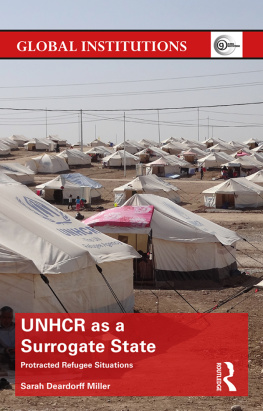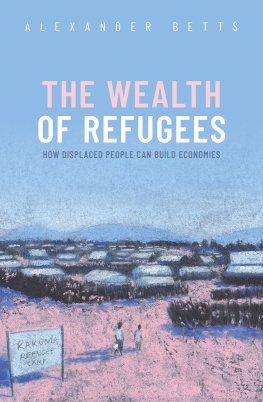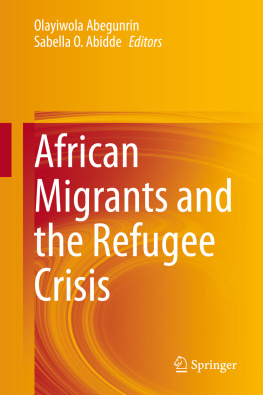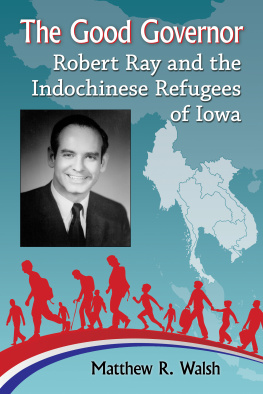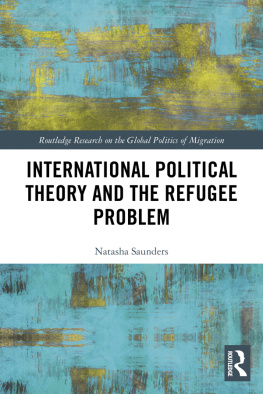First published 1993 by Westview Press, Inc.
Published 2019 by Routledge
52 Vanderbilt Avenue, New York, NY 10017
2 Park Square, Milton Park, Abingdon, Oxon OX14 4RN
Routledge is an imprint of the Taylor & Francis Group, an informa business
Copyright 1993 Taylor & Francis
All rights reserved. No part of this book may be reprinted or reproduced or utilised in any form or by any electronic, mechanical, or other means, now known or hereafter invented, including photocopying and recording, or in any information storage or retrieval system, without permission in writing from the publishers.
Notice:
Product or corporate names may be trademarks or registered trademarks, and are used only for identification and explanation without intent to infringe.
Library of Congress Cataloging-in-Publication Data
Hein, Jeremy
States and international migrants: the incorporation of
Indochinese refugees in the United States and France / Jeremy Hein.
p. cm.
Includes bibliographical references and index.
ISBN 0-8133-8541-5
1. RefugeesIndochina. 2. RefugeesFrance. 3.RefugeesUnited
States. I. Title.
HV640.5.I5H46 1992
362.87dc20 92-32777
CIP
ISBN 13: 978-0-367-28878-5 (hbk)
Research on international migration is expanding from its traditional focus on the cultural and economic dimensions of migration to include the political relationship between migrants and the host society. Two functions of the modern stateproviding social welfare and regulating cultural pluralismare particularly crucial for the adaptation of contemporary international migrants. I propose explaining types of state intervention in the adaptation process by examining variation in the structure of welfare states and nationstates. A state's response to international migrants also is shaped by the historical context of the migration, such as the presence or absence of compatriot communities when migrants arrive. The interaction of such historical and structural factors produces a mode of state incorporation: the national model implicitly guiding a state's management of international migrants' entry into host society institutions. In turn, I suggest that modes of state incorporation pose distinct challenges to international migrants' membership in kin and communal networks. One function of migrants' social networks is responding to state intervention.
If not for the tragedy of the Indochinese refugee crisis, one might say that the migration of Vietnamese, Laotians, and Cambodians to the United States and France since 1975 was designed for a study of state effects on the adaptation of international migrants. Through colonization and then communist containment, both countries took turns controlling Vietnam, Laos, and Cambodia. France and the United States failed in their missions, in the process transforming the Indochinese into allied aliens: foreigners who are the responsibility of an interventionist state as a result of foreign policy defeats. Indochinese refugees migrate to the United States and France because of this history, and the host states take a special interest in managing their initial adjustment. Demographic similarities between the two flows further enhance the comparison. Since the characteristics of the arriving refugees are similar, historical and structural factors provide better explanations for the different forms of state intervention in the United States and France.
explains in more detail the theoretical importance of studying international migration in close association with historical context, the welfare state, the nation-state, and migrants' social networks.
This approach to international migration removes some of the human drama from the Indochinese diaspora that I have experienced firsthand through work in resettlement agencies and personal contact with refugees. However, it leads to the resolution of some fascinating anomalies. Why do the French and American states manage the adaptation of Indochinese refugees in different ways when the arriving refugees have similar social characteristics? How could the American military, in the span of thirty years, place Japanese-Americans and Vietnamese refugees in camps for opposite reasons? What leads the French Ministries of Foreign Affairs and Social Affairs to treat arriving Indochinese refugees like repatriates from Algeria in 1962? Analyzing modes of state incorporation answers these questions, in the process revealing how states constrain the adaptation of international migrants.
Initially, the American and French experiences with Indochinese refugees seemed to provide a natural research design for testing theories of international migration. Such plans changed soon after I entered the French archives and began interviewing refugees in France. The push-pull theory versus the world systems approach and the ethnic resiliency perspective versus assimilation theory proved to be targets too small for the rich data uncovered by my cross-national research on states and participant observation of refugees' social networks. Instead, I decided to accept Charles Tilly's (1984) challenge to comparative historical sociologists to show that societies really exist, that they are not "grand names" lacking internal consistency. The object of my inquiry is two host societies, and I use three factors to explain their response to the arrival of political migrants. Rather than test theories, I inductively construct a complex generalization about the relationships among history, states, and migrants' social networks. I pursue a variation-finding comparison to "make sense of social structures and processes that never recur in the same form, yet express common principles of causality" (Tilly 1984, p. 146).
The financial support of two organizations was vital to the genesis of this book. I could not have pursued five months of research in France during 1987-1988 without a grant from the National Science Foundation. While in France, Ida Simon-Barouh, Franois Bonvin, and Jean-Pierre Hassoun were exceptionally helpful scholars and hosts. Marie-Reine Jouffroy and Patrick Coquard at the Bibliothque de la Documentation Franaise went well beyond their duties by teaching me how to access French government documents.
7pon returning to the United States, I had the good fortune to join a Ford Foundation project at its Chicago site: "Changing Relations in the U.S.: Newcomers and Established Residents." Robert Bach and Roger Sanjec, coordinators for the national project, advanced my thinking about the unique turns in contemporary American pluralism. I owe an even greater intellectual debt to Josef Barton, Charles Moskos, Arthur Stinchcombe, and especially Charles Ragin. They provided me with encouragement when needed and constructive criticism where warranted. Janet Abu-Lughod, Howard Becker, A1 Hunter, Bill Sampson, and Allan Schnaiberg also will find their positive influence in this work. A special thanks goes to Peter Rose. In 1982, he channeled my personal interest in European refugees during the 1930s into the study of contemporary political migrants.
Jeremy Hein

